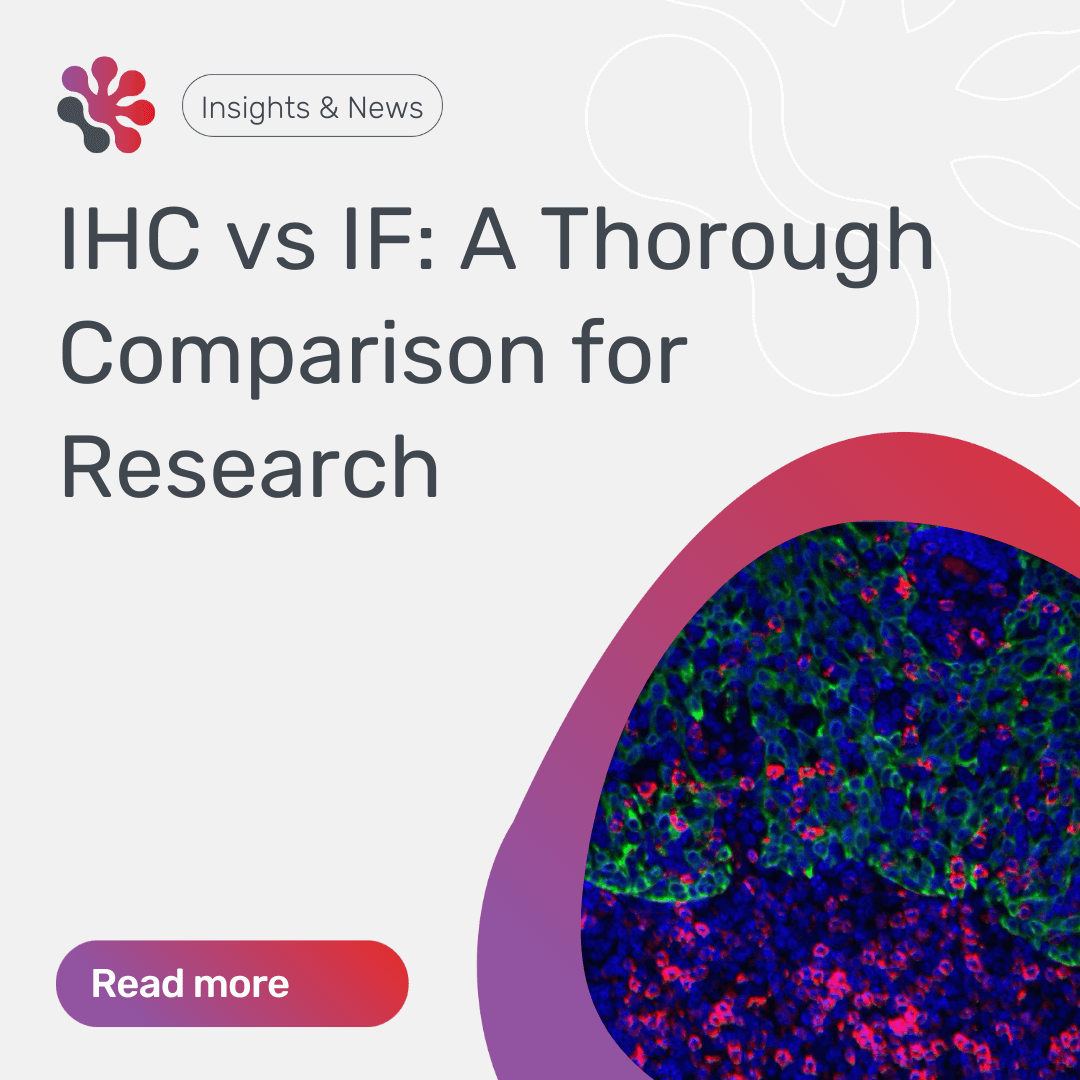As experts in cellular and digital pathology, we often get asked about the importance of Tissue cross-reactivity (TCR) studies especially by people new to the drug development process. These studies are an essential tool for evaluating the binding properties of biologics, in different human and non-human tissues. They form a crucial part of the regulatory Investigational New Drug (IND) or Clinical Trial Application (CTA) process and shouldn’t be overlooked!
What is Tissue Cross-Reactivity?
Tissue cross-reactivity is when an antibody or other immunological agent recognises and binds to multiple types of antigens. This can occur when the antigens share similar structural features or epitopes and can lead to a whole range of potential problems. Let’s say you’re using an antibody to detect a specific protein in a tissue sample, if the antibody also binds to a similar protein in the sample, it can produce a false positive result leading to inaccurate diagnostic test result or unwanted side effects from the therapeutic agents being looked at.
What is a Tissue Cross-Reactivity (TCR) study?
A Tissue cross-reactivity (TCR) study is a method used to identify non-specific and specific binding of test biologics in different types of human or animal tissues. This information is vital in ensuring that experimental antibodies do not bind to epitopes other than the targeted sites, thus minimizing the risk of treatment-related toxicity. This type of study is commonly used in the development of biologics, such as monoclonal antibodies and antibody-like proteins, and the development of medical treatments, particularly for autoimmune diseases and cancer. If you’d like to learn more in-depth about how TCR studies are conducted check out our free pdf here!
What is the Role of TCR Studies in Medical Research and the Drug Discovery Process?
By understanding the extent of tissue cross-reactivity, researchers can design treatments that specifically target the cells or molecules responsible for the immune response. This can lead to more effective and targeted therapies with fewer side effects. TCR studies also allow for researchers to detect whether new biologics have unintended side effects. TCR studies can detect unintended binding early in the drug discovery process and what effects that might have. Gaining this insight early in the drug discovery process can help prevent costly mistakes later on.
TCR studies are also very useful in identifying target organs and species for toxicology studies. When using human tissue, the primary goal is to identify potential cross-reactive and off-target epitopes across a range of tissues. Whilst with animal tissues, a TCR study helps identify the most relevant species with a target expression profile like that of humans.
How are TCR Studies Conducted?
Tissue cross-reactivity studies are typically conducted through immunohistochemistry (IHC). A panel of up to 38 different types of frozen tissue sections, taken from humans and or animals is selected for the purpose of evaluating tissue cross reactivity. The test biologic is then applied to the tissue samples, and the staining profiles are analysed. In some cases, the staining profiles of animal and human tissues on a test biologic may vary in terms of intensity and distribution.
Are TCR Studies Regulated?
Yes, many countries and regions around the world have specific requirements for TCR studies. The Food and Drug Administration (FDA) in the United States and the European Medicines Agency (EMA) are the two main regulatory bodies for drugs and medical devices in their respective regions. Their requirements can vary from samples size to the tissues used. Learn more about their requirements here.
If you’d like to gain more in-depth insights about TCR studies check out our white paper here, or if you think HistologiX could help you with your TCR studies you can learn more about our TCR service here!
Meet the Team

Agata Stryjewska PhD
Agata is our immunofluorescence specialist with expertise in both fluorescence and chromogenic antibody validation methods. She is currently developing bespoke multiplex immunofluorescence assays for our clients’ projects. Agata also manages our Ultivue projects, offering multiplex immunofluorescence (mIF) solutions and RNAScope projects for the detection of RNA in tissues.
Agata has a Masters degree in Biotechnology from the University of Science and Technology, Wroclaw, and a PhD from the University of Leuven. She has extensive collaborative postdoctoral research experience in neuroscience, stem cells, developmental biology and immunology.






